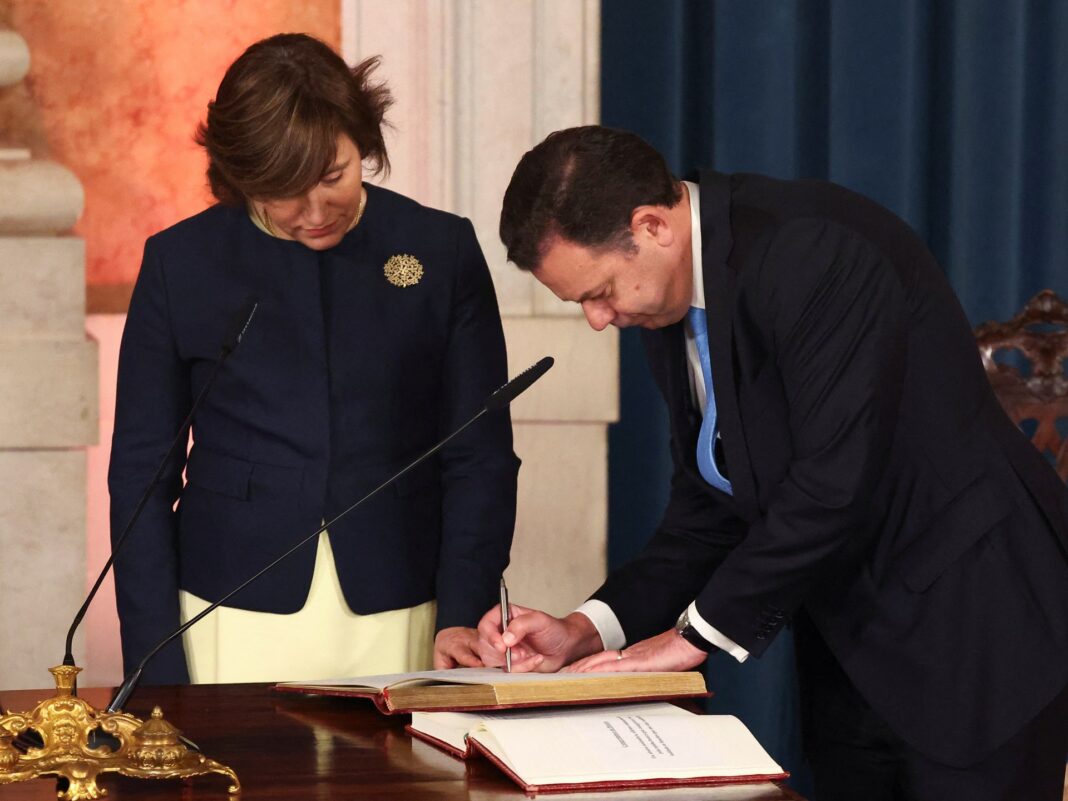With just 80 seats in 230-seat parliament, the government will need the support of the opposition to pass legislation.
Portugal’s new centre-right minority government led by Prime Minister Luis Montenegro has been sworn in amid uncertainty about its long-term viability as it faces a highly fragmented parliament.
The Democratic Alliance (AD) coalition won the March 10 election by a slim margin over the outgoing Socialist Party (PS).
Montenegro said on Tuesday that the government was determined to govern until the end of its four-and-a-half-year mandate and promised to act with “humility, patriotic spirit and capacity for dialogue”, while demanding the same from the opposition.
“The [expected] investiture in parliament [next week] can only mean the opposition will respect the principle of letting us work and execute the government’s programme,” he said.
With just 80 seats in the 230-seat legislature, the AD will need the support of either the far-right Chega party, which quadrupled its parliamentary representation to 50 members of parliament, or the centre-left PS, which secured 78 seats, to pass legislation.
Chega, an anti-immigration party whose fast rise reflects a political tilt towards right-wing populism across Europe, has demanded a government role or a long-term agreement to support the AD, but Montenegro has repeatedly refused to negotiate.
Speaker elected with PS support
Montenegro’s precarious position was exposed last week when Chega rejected his candidate for parliamentary speaker, who was ultimately elected with PS help. The PS warned, however, that such support was a one-off to unblock parliamentary activities.
Portugal, a country of 10.3 million people, is receiving more than 22 billion euros ($23.6bn) through 2026 from the EU to fuel growth and enable economic reforms.
The government has promised tax reductions for families and companies, and higher pensions.
It has also promised to quickly address shortcomings in public healthcare, especially long waiting lists for treatment, and a housing crisis, as well as resolve simmering disputes with police and teachers over pay and work conditions.
The government can push some of its agenda through parliament with opposition support but the key piece of legislation – and its first big test – will be the 2025 budget.
Failure to approve a budget has in the past habitually resulted in early elections in Portugal, and it is likely that the AD will be forced to negotiate the spending plan, and possibly other measures, with the PS.
“The PS … must be clear about its attitude: be a democratic opposition or a blockade,” Montenegro said.







